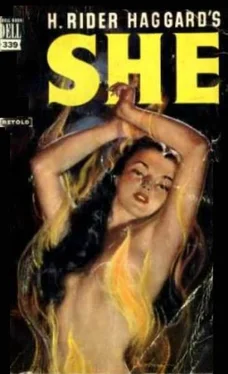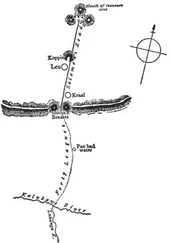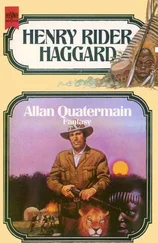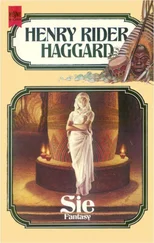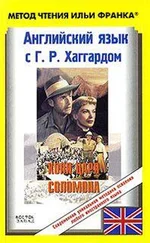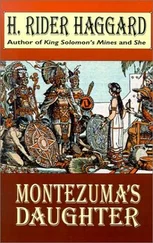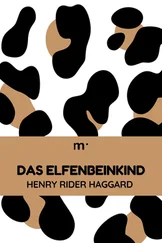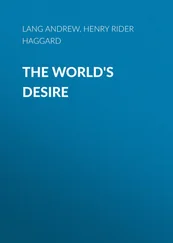Henry Haggard - She
Здесь есть возможность читать онлайн «Henry Haggard - She» весь текст электронной книги совершенно бесплатно (целиком полную версию без сокращений). В некоторых случаях можно слушать аудио, скачать через торрент в формате fb2 и присутствует краткое содержание. Жанр: Прочие приключения, на английском языке. Описание произведения, (предисловие) а так же отзывы посетителей доступны на портале библиотеки ЛибКат.
- Название:She
- Автор:
- Жанр:
- Год:неизвестен
- ISBN:нет данных
- Рейтинг книги:5 / 5. Голосов: 1
-
Избранное:Добавить в избранное
- Отзывы:
-
Ваша оценка:
- 100
- 1
- 2
- 3
- 4
- 5
She: краткое содержание, описание и аннотация
Предлагаем к чтению аннотацию, описание, краткое содержание или предисловие (зависит от того, что написал сам автор книги «She»). Если вы не нашли необходимую информацию о книге — напишите в комментариях, мы постараемся отыскать её.
She — читать онлайн бесплатно полную книгу (весь текст) целиком
Ниже представлен текст книги, разбитый по страницам. Система сохранения места последней прочитанной страницы, позволяет с удобством читать онлайн бесплатно книгу «She», без необходимости каждый раз заново искать на чём Вы остановились. Поставьте закладку, и сможете в любой момент перейти на страницу, на которой закончили чтение.
Интервал:
Закладка:
“Hulloa, old fellow!” whispered Leo, with a return of his old cheerfulness, “have you been paying compliments? I should never have thought it of you!”
“I thank thee, oh Ayesha,” I replied, with as much dignity as I could command, “but if there be such a place as thou dost describe, and if in this strange place there may be found a fiery virtue that can hold off Death when he comes to pluck us by the hand, yet would I none of it. For me, oh Ayesha, the world has not proved so soft a nest that I would lie in it for ever. A stony-hearted mother is our earth, and stones are the bread she gives her children for their daily food. Stones to eat and bitter water for their thirst, and stripes for tender nurture. Who would endure this for many lives? Who would so load up his back with memories of lost hours and loves, and of his neighbour’s sorrows that he cannot lessen, and wisdom that brings not consolation? Hard is it to die, because our delicate flesh doth shrink back from the worm it will not feel, and from that unknown which the winding-sheet doth curtain from our view. But harder still, to my fancy, would it be to live on, green in the leaf and fair, but dead and rotten at the core, and feel that other secret worm of recollection gnawing ever at the heart.”
“Bethink thee, Holly,” she said; “yet doth long life and strength and beauty beyond measure mean power and all things that are dear to man.”
“And what, oh Queen,” I answered, “are those things that are dear to man? Are they not bubbles? Is not ambition but an endless ladder by which no height is ever climbed till the last unreachable rung is mounted? For height leads on to height, and there is no resting-place upon them, and rung doth grow upon rung, and there is no limit to the number. Doth not wealth satiate, and become nauseous, and no longer serve to satisfy or pleasure, or to buy an hour’s peace of mind? And is there any end to wisdom that we may hope to reach it? Rather, the more we learn, shall we not thereby be able only to better compass out our ignorance? Did we live ten thousand years could we hope to solve the secrets of the suns, and of the space beyond the suns, and of the Hand that hung them in the heavens? Would not our wisdom be but as a gnawing hunger calling our consciousness day by day to a knowledge of the empty craving of our souls? Would it not be but as a light in one of these great caverns, that, though bright it burn, and brighter yet, doth but the more serve to show the depths of the gloom around it? And what good thing is there beyond that we may gain by length of days?”
“Nay, my Holly, there is love—love which makes all things beautiful, and doth breathe divinity into the very dust we tread. With love shall life roll gloriously on from year to year, like the voice of some great music that hath power to hold the hearer’s heart poised on eagles’ wings above the sordid shame and folly of the earth.”
“It may be so,” I answered; “but if the loved one prove a broken reed to pierce us, or if the love be loved in vain—what then? Shall a man grave his sorrows upon a stone when he hath but need to write them on the water? Nay, oh She , I will live my day, and grow old with my generation, and die my appointed death, and be forgotten. For I do hope for an immortality to which the little span that perchance thou canst confer will be but as a finger’s length laid against the measure of the great world; and, mark this! the immortality to which I look, and which my faith doth promise me, shall be free from the bonds that here must tie my spirit down. For, while the flesh endures, sorrow and evil and the scorpion whips of sin must endure also; but when the flesh hath fallen from us, then shall the spirit shine forth clad in the brightness of eternal good, and for its common air shall breathe so rare an ether of most noble thoughts that the highest aspiration of our manhood, or the purest incense of a maiden’s prayer, would prove too earthly gross to float therein.”
“Thou lookest high,” answered Ayesha, with a little laugh, “and speakest clearly as a trumpet and with no uncertain sound. And yet methinks that but now didst thou talk of ‘that Unknown’ from which the winding-sheet doth curtain us. But perchance, thou seest with the eye of Faith, gazing on that brightness, that is to be, through the painted-glass of thy imagination. Strange are the pictures of the future that mankind can thus draw with this brush of faith and this many-coloured pigment of imagination! Strange, too, that no one of them doth agree with another! I could tell thee—but there, what is the use? why rob a fool of his bauble? Let it pass, and I pray, oh Holly, that when thou dost feel old age creeping slowly toward thyself, and the confusion of senility making havoc in thy brain, thou mayest not bitterly regret that thou didst cast away the imperial boon I would have given to thee. But so it hath ever been; man can never be content with that which his hand can pluck. If a lamp be in his reach to light him through the darkness, he must needs cast it down because it is no star. Happiness danceth ever apace before him, like the marsh-fires in the swamps, and he must catch the fire, and he must hold the star! Beauty is naught to him, because there are lips more honey-sweet; and wealth is naught, because others can weigh him down with heavier shekels; and fame is naught, because there have been greater men than he. Thyself thou saidst it, and I turn thy words against thee. Well, thou dreamest that thou shalt pluck the star. I believe it not, and I think thee a fool, my Holly, to throw away the lamp.”
I made no answer, for I could not—especially before Leo—tell her that since I had seen her face I knew that it would always be before my eyes, and that I had no wish to prolong an existence which must always be haunted and tortured by her memory, and by the last bitterness of unsatisfied love. But so it was, and so, alas, is it to this hour!
“And now,” went on She , changing her tone and the subject together, “tell me, my Kallikrates, for as yet I know it not, how came ye to seek me here? Yesternight thou didst say that Kallikrates—him whom thou sawest—was thine ancestor. How was it? Tell me—thou dost not speak overmuch!”
Thus adjured, Leo told her the wonderful story of the casket and of the potsherd that, written on by his ancestress, the Egyptian Amenartas, had been the means of guiding us to her. Ayesha listened intently, and, when he had finished, spoke to me.
“Did I not tell thee one day, when we did talk of good and evil, oh Holly—it was when my beloved lay so ill—that out of good came evil, and out of evil good—that they who sowed knew not what the crop should be, nor he who struck where the blow should fall? See, now: this Egyptian Amenartas, this royal child of the Nile who hated me, and whom even now I hate, for in a way she did prevail against me—see, now, she herself hath been the very means to bring her lover to mine arms! For her sake I slew him, and now, behold, through her he hath come back to me! She would have done me evil, and sowed her seeds that I might reap tares, and behold she hath given me more than all the world can give, and there is a strange square for thee to fit into thy circle of good and evil, oh Holly!
“And so,” she went on, after a pause—“and so she bade her son destroy me if he might, because I slew his father. And thou, my Kallikrates, art the father, and in a sense thou art likewise the son; and wouldst thou avenge thy wrong, and the wrong of that far-off mother of thine, upon me, oh Kallikrates? See,” and she slid to her knees, and drew the white corsage still farther down her ivory bosom—“see, here beats my heart, and there by thy side is a knife, heavy, and long, and sharp, the very knife to slay an erring woman with. Take it now, and be avenged. Strike, and strike home!—so shalt thou be satisfied, Kallikrates, and go through life a happy man, because thou hast paid back the wrong, and obeyed the mandate of the past.”
Читать дальшеИнтервал:
Закладка:
Похожие книги на «She»
Представляем Вашему вниманию похожие книги на «She» списком для выбора. Мы отобрали схожую по названию и смыслу литературу в надежде предоставить читателям больше вариантов отыскать новые, интересные, ещё непрочитанные произведения.
Обсуждение, отзывы о книге «She» и просто собственные мнения читателей. Оставьте ваши комментарии, напишите, что Вы думаете о произведении, его смысле или главных героях. Укажите что конкретно понравилось, а что нет, и почему Вы так считаете.
